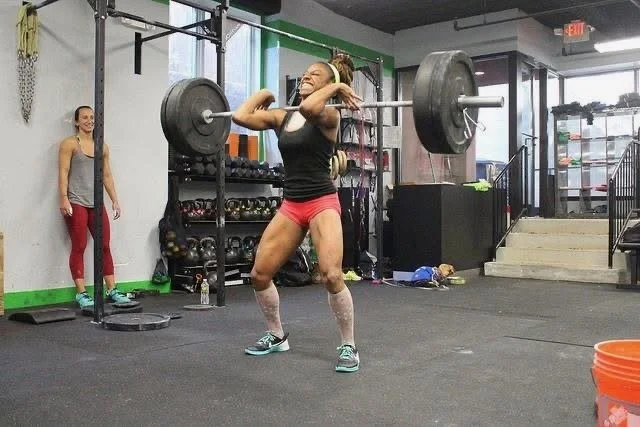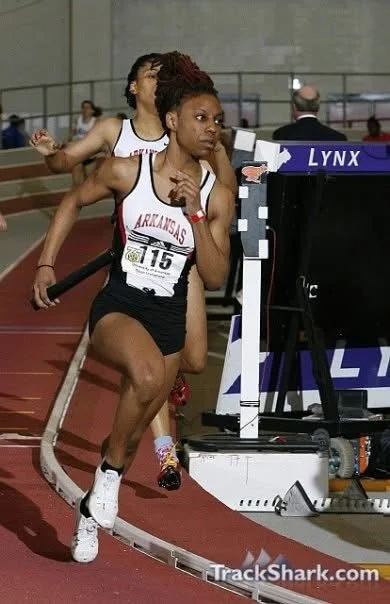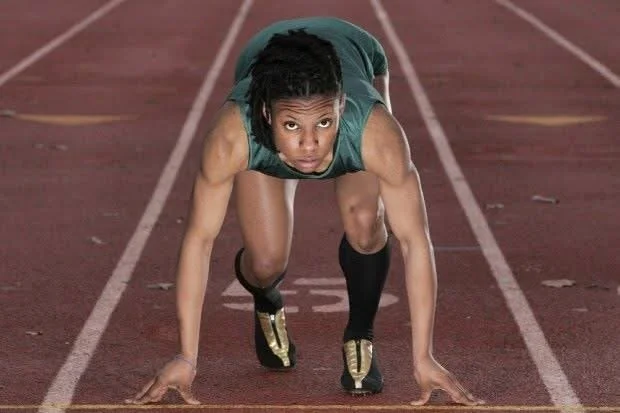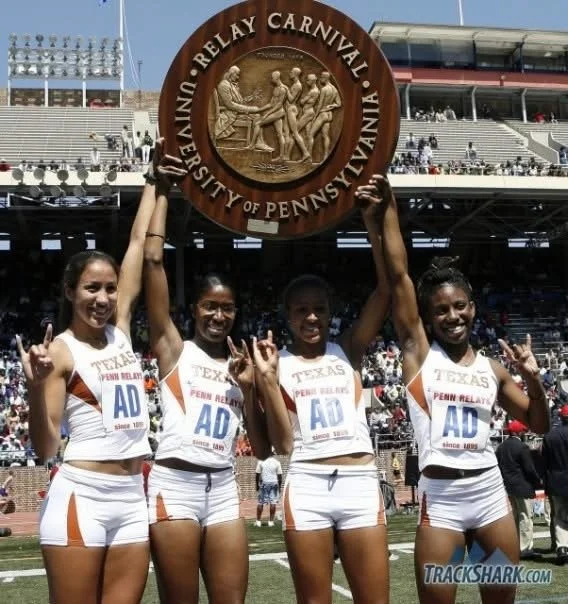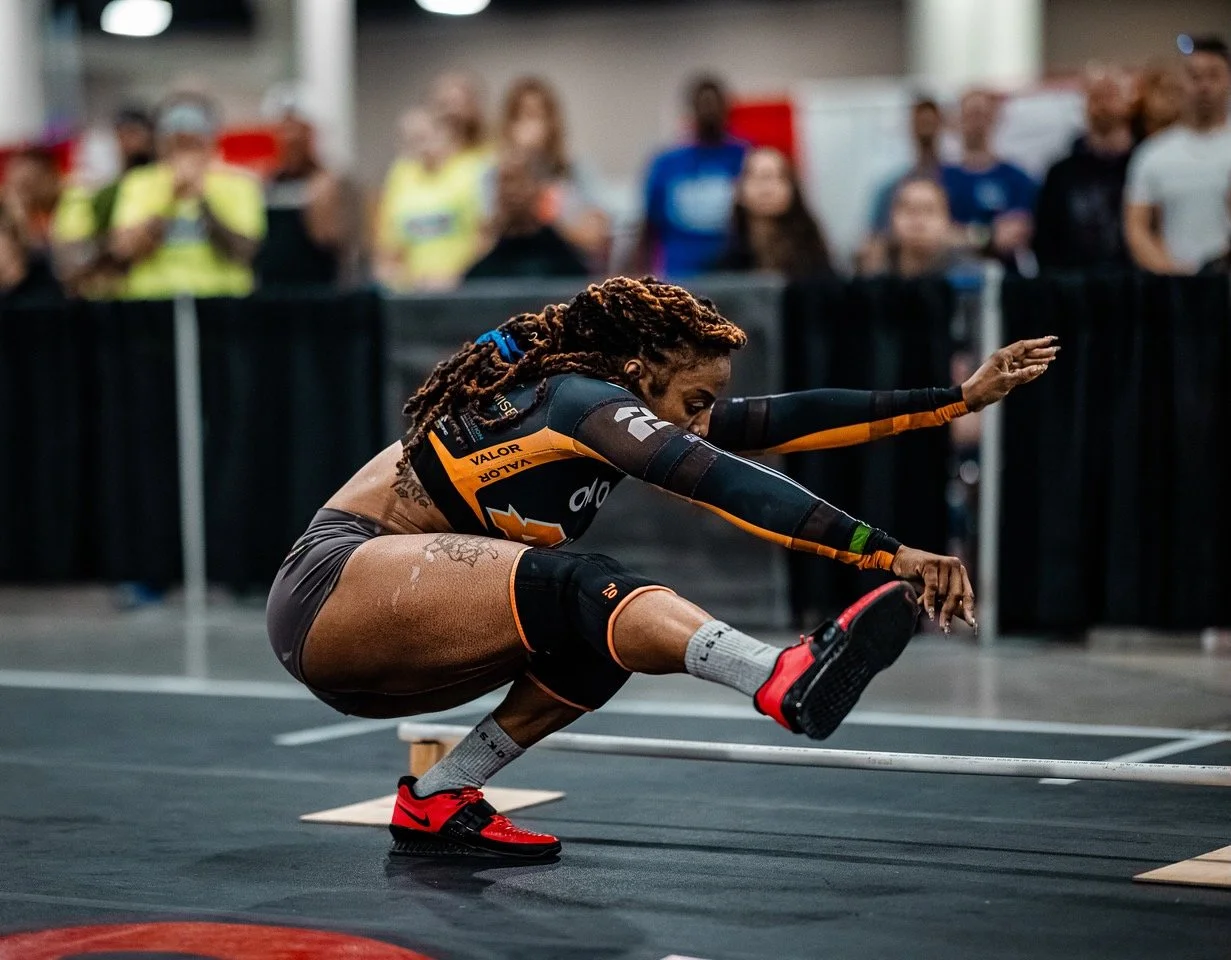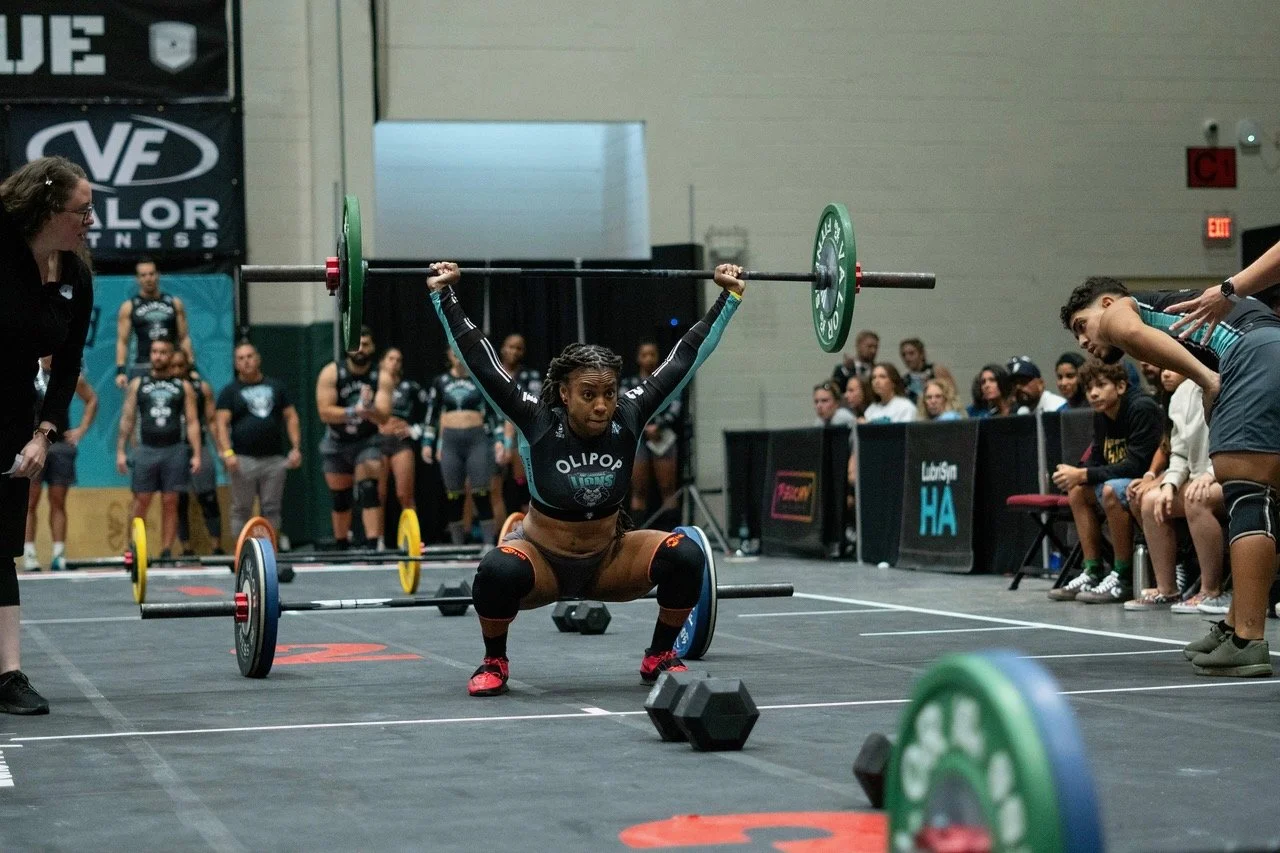Janine Nicole —
Where Resilience Meets Representation
Coach spotlight published on Sept 29, 2025
Photos & interview by Matt LeGrice
Letter J Number Nine “J9” Nicole is a coach, lifelong athlete, who’s been helping to shape the community at JCFit since 2014. A former college track athlete, she (eventually) fell in love with CrossFit’s of mix of intensity and community and now leads programming and coach development at JC Fit (no longer affiliated with CrossFit). Janine focuses on connecting with the members to help them build strength for life.
Outside of the gym, Janine is Board President of the OUT Foundation, an LGBTQ+ nonprofit that provides scholarships, maps safe gyms, and helps fitness spaces become more inclusive. For her, representation means more than visibility. It’s about creating places where everyone feels like they belong.
She also competes in She also competes in the United Grid League as a bodyweight specialist, crushing its fast-paced, team-first competition. Whether coaching, competing, or leading, J9 is known for building spaces that feel like family and making sure every body is welcome.
Who are you, in your own words?
My name’s Janine Nicole, but everybody calls me J9—Letter J, Number nine.
I’m just authentically me, you know? I’m Loud, I’m proud, I say what I want, how I want. I’m from Jersey. Born and raised in Elizabeth. I left for a bit for school, came back in 2010, and moved to Jersey City in 2014 and I’ve been here ever since.
And you started at JC Fit about 10 years ago?
Yeah. It’s been a minute!
JC Fit was a Crossfit gym yeah? What got you into Crossfit in the first place?
I was still running a lot after I graduated from Arkansas, ut in a conversation with one of my college track teammates and Affiliate owner in South Jersey, Lauren, she said, “Whenever you hang up the spikes, let me know. I’ll get you into CrossFit out there.”
I had no clue what that was.
So I showed up at CrossFit Jersey City, and I fell in love. At first it was on-again, off-again. I’d literally run two miles to the gym, do a CrossFit workout, then run two miles back home. Still a runner at heart back then.
Do I do run now? No.
Don’t ask me to go run anything outside of my programming.
Photos provided by JanineBack when you were running, what was your distance?
I was mid-distance—the 800 was my thing. It’s basically a sprint disguised as middle distance. They used to call it the 800 meter run, but now they call it the 800 meter dash.
Back then coaches didn’t really know what to do with us, but now you see a lot more sprinters moving up into the 800 from the 400. I loved it, but I also hated it. These days I’ll take a heavy barbell over that pain any time.
Photos provided by JanineWhat’s a typical day look like for you now?
I basically live in the gym. Someone just asked if I go home. I swear I do, but I’m here a lot.
I’m not coaching as many group classes anymore. I’m more focused on coach development, personal training, and programming with my partner.
Outside of the gym, I’m the board president of the OUT Foundation, so I’m taking meetings, working on projects, and then trying to squeeze in my own training for GRID League. It’s a lot, but I love it.
I want to ask you more about JCFIT. Tell me what makes it special.
We’re intentional. You walk in and see a rainbow flag right on the logo. You know right away you know what kind of space it is. Our staff reflects that, too. We celebrate everybody, literally every body.
When we opened Journal Square, we had a huge influx of Indian members, so we celebrated Diwali. If someone tells me about a holiday that matters to them, we’ll celebrate it. That’s what makes it family. People leave us when they move, not because they don’t feel welcome. And when they do leave, we throw them going-away parties. That’s the kind of community it is.
And what does programming look like at JCFit?
We put a lot of thought into balance. We do strength, conditioning, skill. We still believe in fundamentals. Every new member does six one-on-one sessions before they join group classes. It’s slower, but it builds confidence and makes people feel ready.
And then beyond the workouts, we’re paying attention to people’s lives. Did they just have a baby? New job? Vacation? We want people to feel seen in and out of the gym. It’s training, but it’s also relationship building.
So what’s your philosophy as a coach?
It’s about longevity and community. I don’t care what weight you’re lifting or how fast you finish a workout. I care that you’re showing up and leaving stronger than you came in and that you’re building strength that lasts. Capability that carries into the rest of your life. I’ll celebrate your new PR, sure, but I’ll also celebrate your new job, your haircut, or the fact that you came back after two months away. That’s all part of fitness for me.
“I don’t care what weight you’re lifting or how fast you finish a workout. I care that you’re showing up and leaving stronger than you came in and that you’re building strength that lasts.”
For those who don’t know — what is this insane thing I’ve seen you doing on Instagram? United Grid League?
It’s a co-ed team sport—10 men, 10 women. Each person has a role: bodyweight specialist, strength specialist, or utility (the all-arounders). The competition is 11 races across a four-quadrant grid.
It’s fast, intense, and you sub in and out like soccer. My first year we went undefeated and won the championship. What I love is you don’t have to be good at everything—you specialize in what you’re great at. For me, that’s bodyweight. It’s track-team vibes mixed with CrossFit, but more fun.
What’s your role?
I’m a bodyweight specialist. So no, you won’t see you won’t see me lifting something that I can’t. You’ll see me on the rig, sprinting through burpees over a bar, doing what I’m good at. And that’s what I love about United Grid League. You don’t have to be great at everything. You play to your strengths.
What’s been your best GRID memory so far?
My very first season. Our team went undefeated and won the whole championship. That was my intro. I came in, win it all, hold the trophy. And what made it even better was our team looked like the community we come from. We had so much diversity, so many different backgrounds, and not necessarily big CrossFit Games names either. Just ridiculously talented people that you might not even know if you only follow the top 1%. That’s powerful to me.
And your partner Taylar is your coach?
Yeah. I started out with the Orlando Aces, where Taylar coached me through my first two GRID seasons before she retired.
Now I compete with the Fort Lauderdale Lions under new coaches, but she still advises me, especially with the challenges of training remotely. Taylar has a real skill for spotting athletes who might not already be in the spotlight, and she’s built something special that continues to inspire me.
For my day-to-day programming outside of GRID, I work with Mike of Sport Specific Power, who I’ve been with for over five years and who continues to guide my long-term development.
You’ve been really open about being out and representing the queer community. What was that journey like for you?
I came out in college. I’ve always been a rip-the-band-aid-off kind of person, so I just told my mom one day before graduation. Like, “Hey, that girl I’m always hanging out with? She’s my girlfriend.”
My mom was shocked at first, but then it was very quickly fine after that. My family’s eccentric. My brother’s in an interracial relationship, my sister is deep into Pan-African culture, homeschooling her kids. And we all as a family rock our natural hair.
What did representation look like for you growing up for being both gay and black, compared to now?
Growing up Black, yes, I saw plenty of people who looked like me in my community and in track. But queer representation? That was missing. In college, I finally saw more people coming out and being themselves.
Now in Jersey City, it’s night and day. This place is so diverse—it’s the opposite of a bubble. Our gym reflects that too. But when I travel? I’m Googling “LGBTQ+ friendly” before I book. I want safe spaces, period. I’m not just walking into any random place.
Do you think fitness is ahead of the curve on inclusivity?
In some ways, yes. Fitness doesn’t care who you are. It cares that you show up and put in work. But it depends where you are and who’s running the space. At JC Fit, we’re intentional about making it inclusive. You see a rainbow flag in the window, you know you’re safe. And if that flag makes you frown? Cool, then you know this isn’t your space. That’s the whole point. We celebrate everybody—literally every body.
You’re also the board president of the OUT Foundation. What does the foundation do?
The OUT Foundation is an LGBTQ+ nonprofit, and our mission is simple. We break down barriers that block queer folks from fitness and wellness. Because those barriers are real. Money, safety, not knowing if you’ll be accepted when you walk in the door.
So how do you break those barriers?
We run a scholarship program to get athletes into safe gyms. We connect people to spaces where they won’t be looked at sideways just for being who they are. We built an Inclusive Map. It’s kind of like Google Maps, but for affirming gyms. If you’re traveling and wondering where you can work out without judgment, you can pull it up and know you’re safe.
So if a gym wants to get involved, what do they do?
Just reach out to us at theoutfoundation.org. We’re a resource. If it’s not us, we know other organizations who can help. The network is out there. We just want people to know they’re not alone.
Ok, last question: If you disappeared tomorrow, what would you hope carries on without you?
I think about that a lot. At JC Fit, the culture we’ve built…that feeling of family, that inclusivity. I know that would carry on. With my work at the OUT Foundation, the systems and people we’ve put in place will keep pushing forward.
But more than that, I hope the relationships I’ve built keep rippling. I try to be fully transparent, to show up as myself, and to impact people in some way. If someone moves differently in their life because of knowing me, because of something I said, or the way I coached them…that’s what I want to live on.
I don’t want people to reset after me. I want the energy and the culture to continue, even if my name just comes up years later and they remember, “Oh yeah, J9 made me feel seen.” That’s the legacy I care about.



